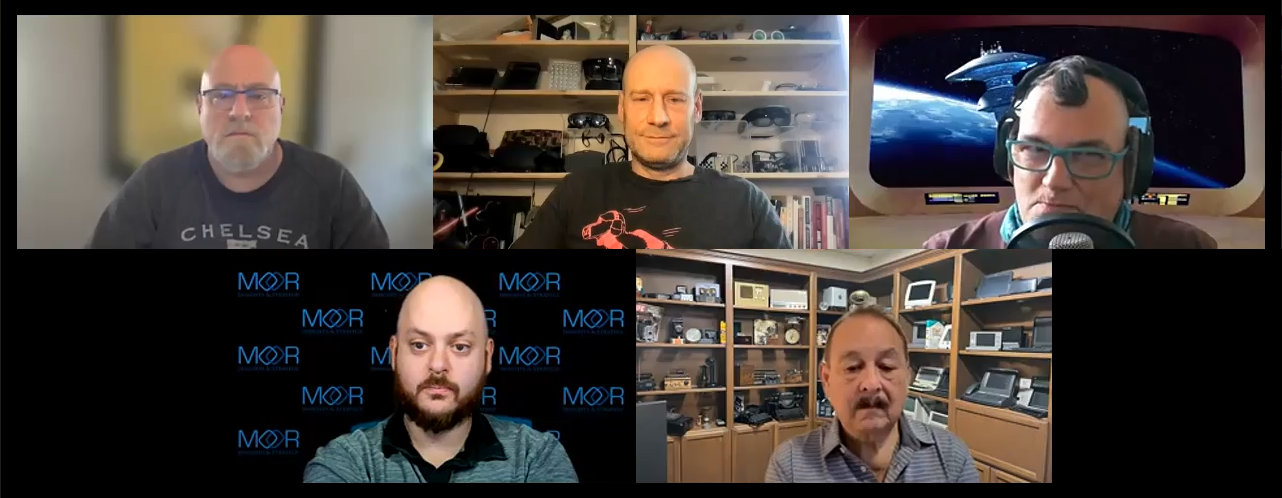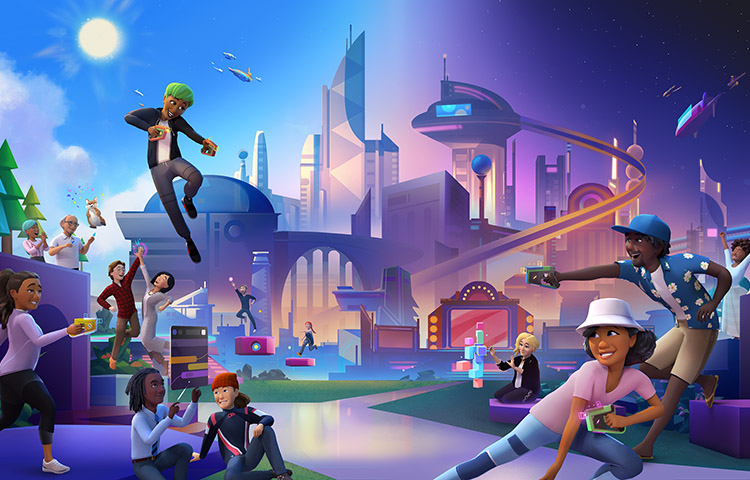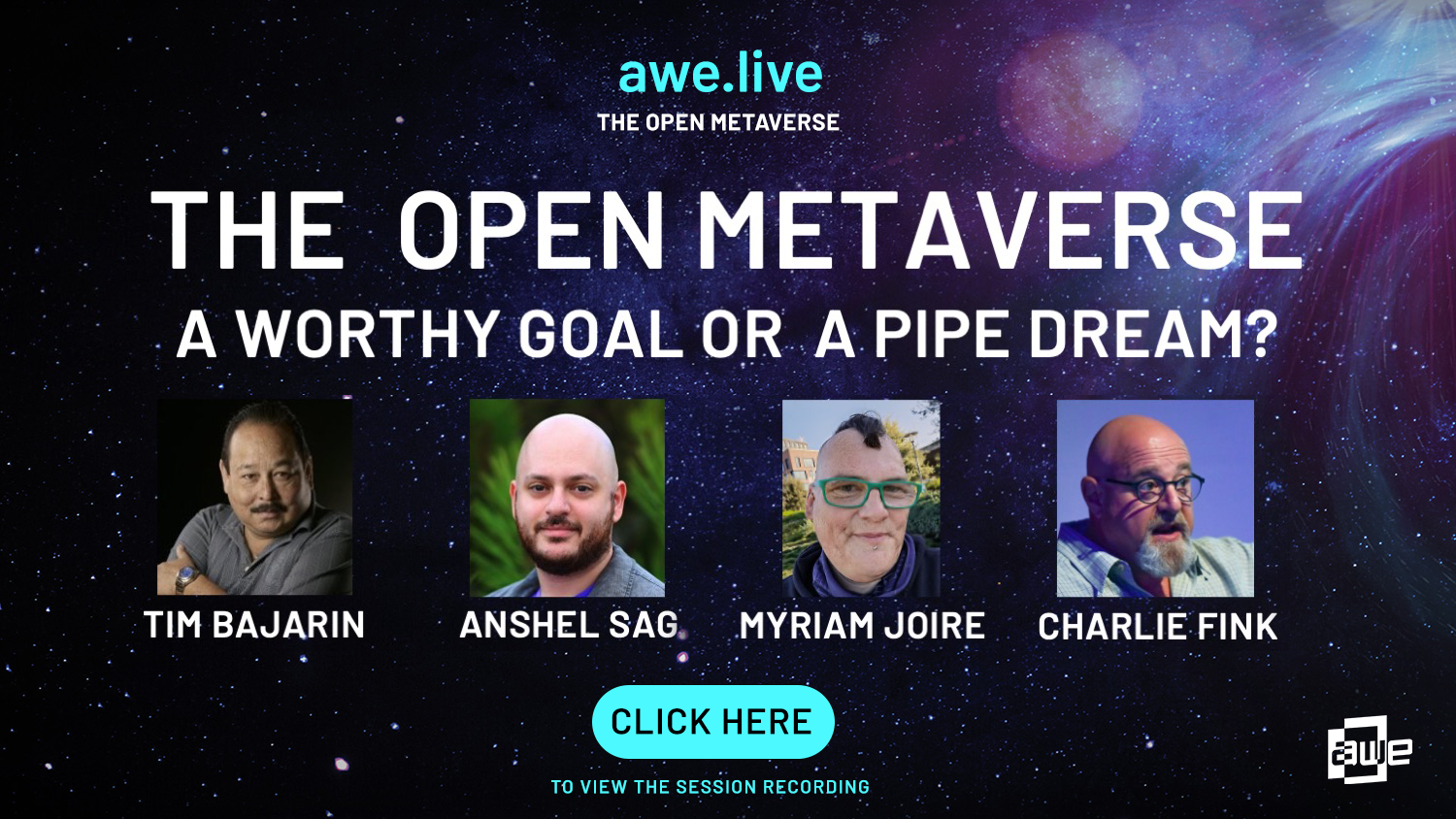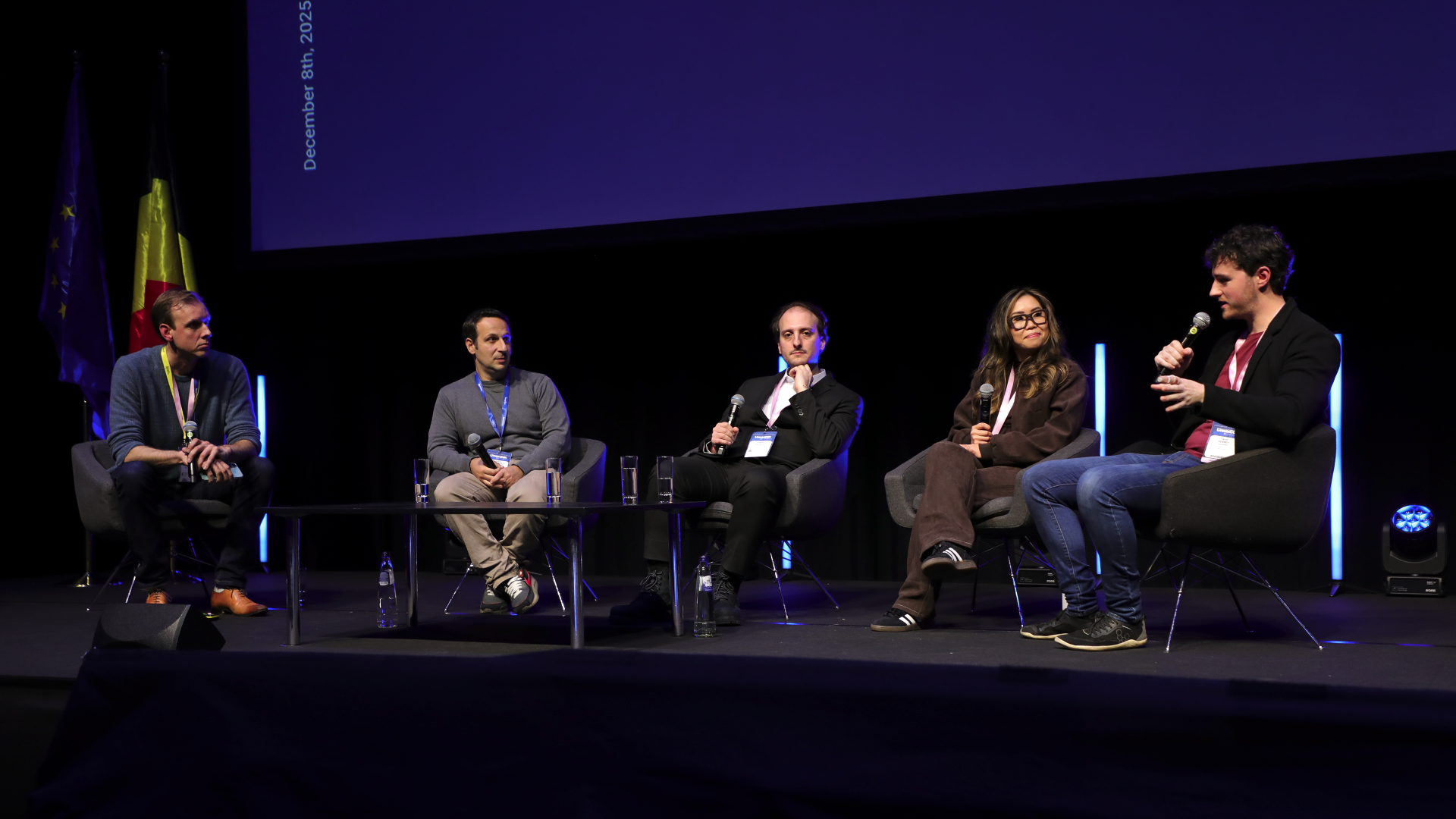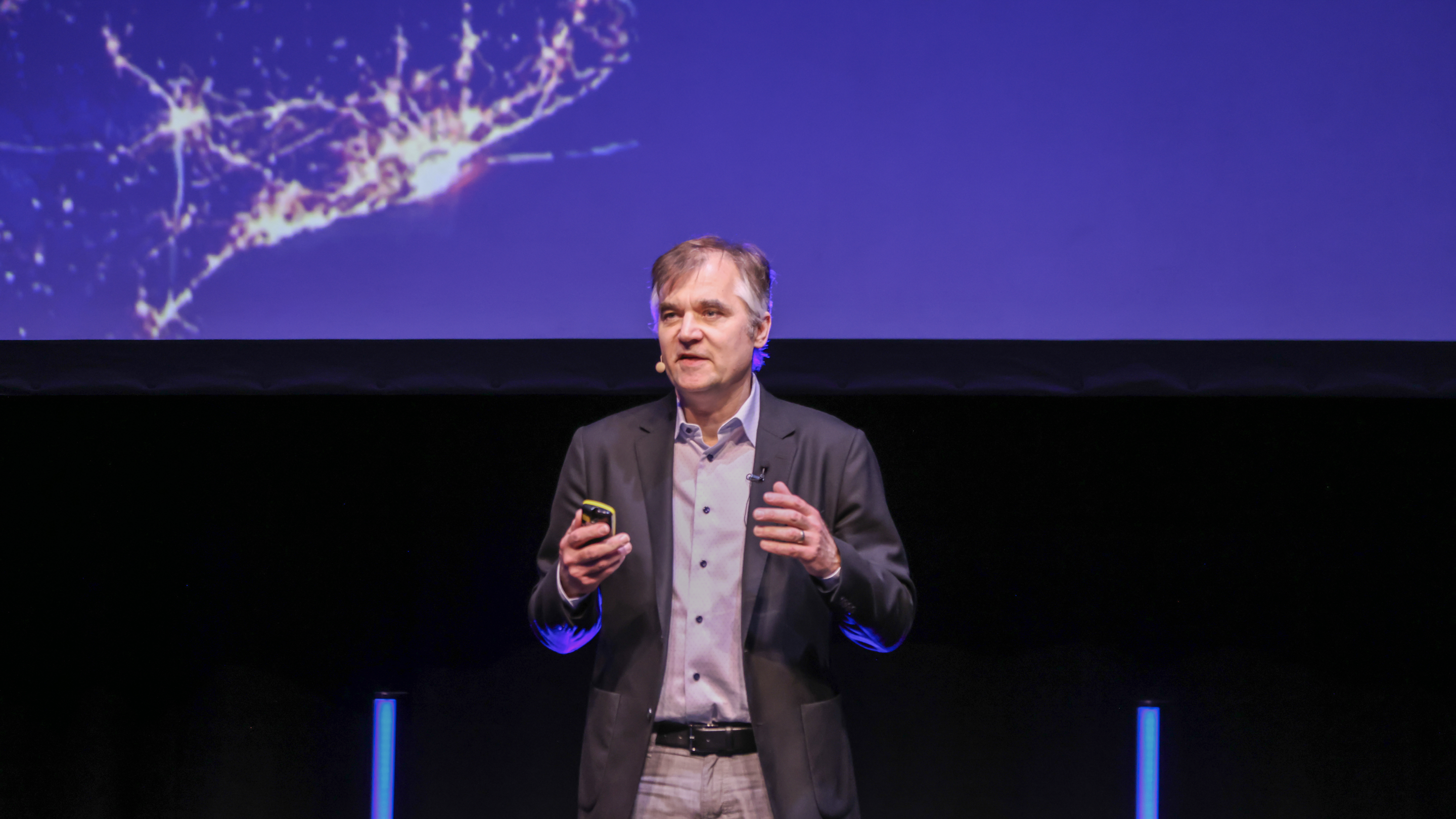It’s been almost impossible to avoid hearing about the Metaverse in the last few months, with more and more companies using the term as a buzzword in their marketing material. The hype is not surprising, given Facebook’s rebranding to Meta in October last year. Although, it is important to note that the general term does not refer to the Metaverse as defined by Meta. In fact, most people are actually still trying to determine what the word ‘Metaverse’ means, or more specifically, exactly what the Metaverse will look like. The same can also be said for the Open Metaverse, with the term meaning different things to different people.

What is an Open Metaverse?
To some, an Open Metaverse simply means “open source”. To others it is more about interoperability and open standards and protocols that will allow for different virtual worlds to be connected. It may also mean an open economy that is built on DeFi (Decentralized Finance), and of course some people consider an Open Metaverse simply something that is open to everyone and where anyone can join in. Whatever your preferred definition, it is clear that some degree of openness is key in order for an Open Metaverse to work. But why is this important?
One idea is that working towards an Open Metaverse may actually be in the best interests of all stakeholders, and that by working together, giant tech corporations as well as individuals looking to benefit from the Metaverse could actually make the overall size of the pie much larger, thus creating more opportunities for each individual player as a result.
To discuss further, AWE’s Ori Inbar sat down with panelists Tim Bajarin (Chairman at Creative Strategies, Inc.), Anshel Sag (Principal Analyst at Moor Insights & Strategy), Myriam Joire (Technology Journalist and Podcaster), and Charlie Fink (Metaverse Consultant, Forbes Columnist, Author and Adjunct Faculty member at Chapman University).
Kicking things off and diving into his own take of what an Open Metaverse will look like, Charlie Fink noted the concept of “multiple metaverses”. These multiple metaverses may or may not be connected to a larger overarching Open Metaverse, depending on who owns them and what they are being used for.
An Open Metaverse according to Myriam Joire is ideally one that would be similar to what the web has become today. However, the downside to emulating the web would also be the likely creation of lots of closed ecosystems or “walled gardens”, which is exactly what has happened with today’s web and for the most part has been driven by corporate interests.
Adding to that sentiment, Anshel Sag noted that we currently have a situation where corporations don’t really allow for portability of assets across their respective platforms, since it is not really in their best interests. For example, if you’ve purchased a video game on Xbox, you don’t also own the PlayStation version of the game, so you effectively have to own it twice if you want it on both console platforms. The same goes for many types of digital content, including music, movies, apps, and more.
An Open Metaverse could therefore benefit from incentivising portability, according to Anshel. This could be done through the creation of standards and policies that allow for the movement of assets across platforms, which would ultimately grant users more freedom, control and ownership over their digital content.
The Metaverse according to Meta (Image source: Meta)
What standards and rules should govern an Open Metaverse and why do we need them?
If the Open Metaverse is to be open in the same ways that the web has been, then it will also require its own set of standards and protocols similar to what the internet has, for example, Hypertext Transfer Protocol (also known as simply “http”), which forms the foundation of any data exchange on the web. Similarly, the work of organizations such as ICANN - the Internet Corporation for Assigned Names and Numbers - has been key to the development of internet policy.
There are already organizations working towards setting some standards across the XR industry, such as the Khronos Group, which offers OpenXR - a royalty-free open standard created for the development of high-performance VR applications that run on multiple platforms. It could be organizations like Khronos that actually have a very important role to play in shaping how open the Metaverse is.
There is already some good news in that some of the key players in the Metaverse, namely Meta and Microsoft, have been quick to adopt some of the early open standards for XR. Whether or not these standards could feasibly extend to whatever form the Metaverse ends up taking, and whether corporations will even consider conforming to them in their entirety is yet to be seen though.
Standards for an Open Metaverse would need to encompass so many aspects of its functionality, including things like standardization of gestures, eye tracking, avatars, 3D assets, payments, privacy, and also the actual components of the technology stack itself too.
Who or what will drive standardization?
One area of XR that could actually drive some of this standardization could be the hardware itself and the companies that manufacture that hardware. Companies like Qualcomm for example, which offers its Snapdragon XR2 chipset designed to enable advanced XR features and experiences.
“Qualcomm is an interesting one because they started with the intention of being a hardware-only player in the metaverse,” Anshel noted. “They’ve realized that software is becoming an increasingly important part of the Metaverse, so they’ve expanded their ecosystem with the creation of things like Snapdragon Spaces, or through the acquisition of companies like Wikitude. Now, they are talking about having standardization around gestures and SLAM, amongst other things. As a result, they are helping to standardize certain features, simply by building them into the hardware and offering software pointers in their APIs to make sure that developers who are building these XR experiences are building them with a certain level of base minimum capabilities.”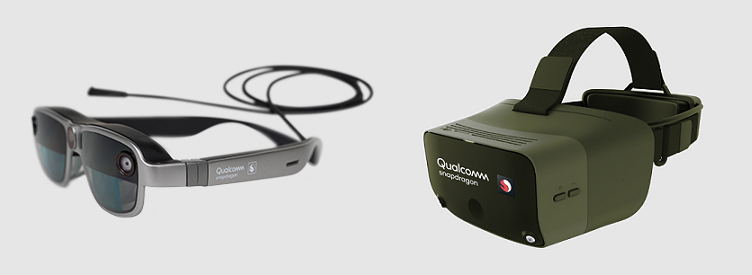
Can the key players in the Metaverse successfully work together?
Where things may start to get tricky for an Open Metaverse is likely going to depend largely on how well tech giants such as Apple, Google, Meta and Microsoft are able to collaborate. If the evolution of the Metaverse follows the same path that the evolution of the web did, then we will likely see these companies attempting to carve their own piece of the Metaverse, resulting in another walled garden-style ecosystem, and all the problems that come with that with regards to openness.
“Apple won’t open up from its walled garden approach that it has with its customers - it’s not going to offer what its customers have on an Android phone for example,” said Tim Bajarin. “An Apple metaverse will have to stay within Apple’s operating system, in order to deliver the user experience that they want.”
That being said, it seems clear that the leading tech corporations are invested in the idea of an Open Metaverse to a certain degree. However, it appears more than likely that they will still want to keep users inside their own ecosystems. Whether the two ideologies are going to be compatible is yet to be seen, but it seems that the sentiment among experts is that we can probably take corporate efforts to build an Open Metaverse at face value… for now.
Elaborating on this, Charlie said: “We should believe Meta’s message that ‘they come in peace’ and they want this [Metaverse] to grow. Plus, they are spending $10bn a year on it, and it wouldn’t exist without them.”
Will corporate interests shape the future of an Open Metaverse?
Still, there is concern that ultimately corporate interests could in fact harm and slow efforts towards the development of an Open Metaverse. Commenting on this, Tim pointed out: “Ultimately, we are going to get there at some point, but it’s not going to happen soon. The whole thing is going to be an evolutionary process, but corporate interests are absolutely going to slow this process down.”
There is a very real risk then, that the desires of corporations could in fact be what shape an Open Metaverse experience, instead of what users actually want. However, as noted earlier, the “larger pie” perspective could counter this “corporate greed” point of view on things.
Whatever direction things end up going, it is clear that right now is the time for the XR industry to try and work towards carving out a path towards a truly Open Metaverse. There is still time to get things right, before we make the same mistakes that were made with the web. This isn’t to say that the Metaverse will replace the web either, as Charlie noted: “The internet doesn’t disappear because we’re talking about the next iteration. We’re going to take the internet with us into whatever spatial environment we enter. The internet is the gateway to the world’s knowledge and that is not going to change, whether we are present in the spatial world or the physical world.”
“It’s going to be a lot of trial and error, and a lot of stepping on toes, and that’s just the way it is. I don’t think there is any magic bullet. I don’t think the metaverse is a new thing. I think it’s an evolution,” said Myriam.
To watch the full panel discussion on awe.live, click here. You can also find more Metaverse insight and talks from speakers including Charlie Fink, along with panel discussions hosted by Cathy Hackl on the awe.live platform, and it’s completely free to register!

